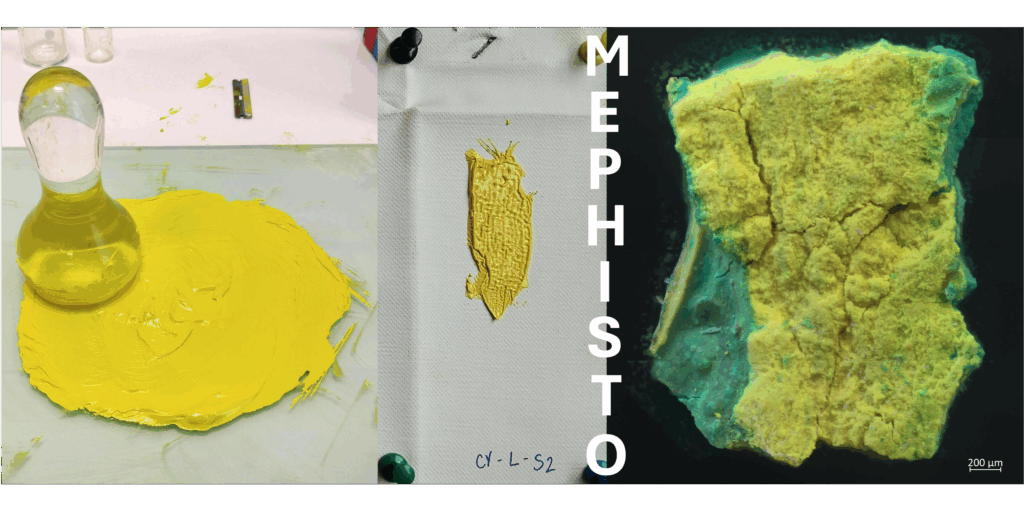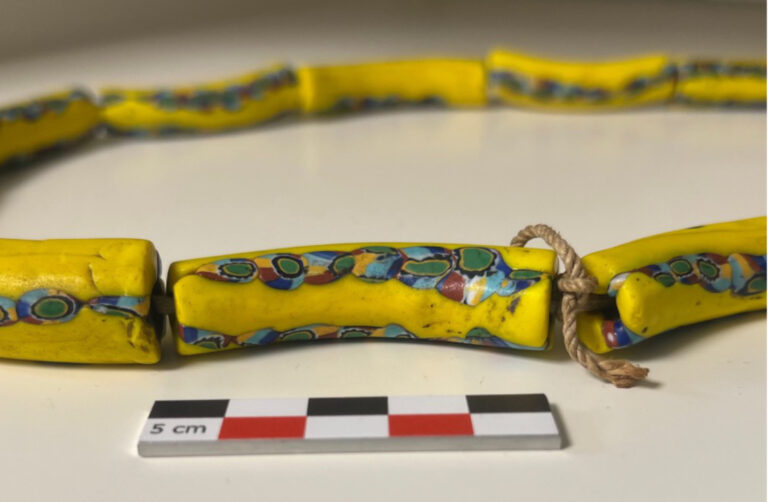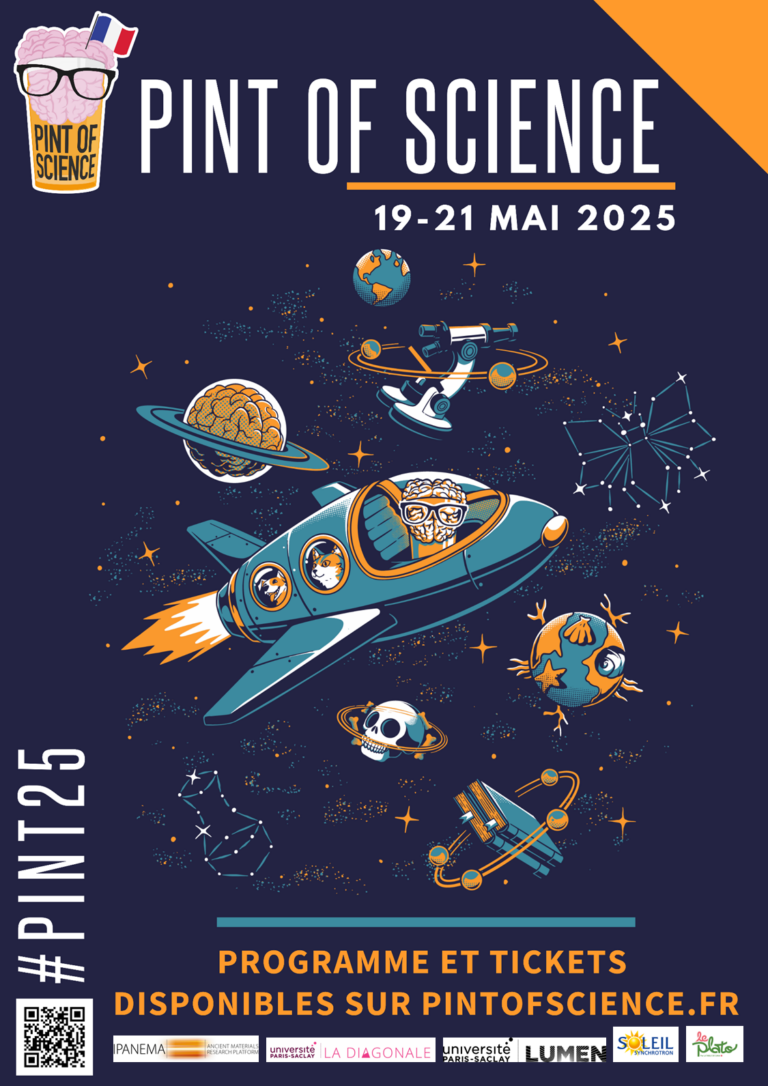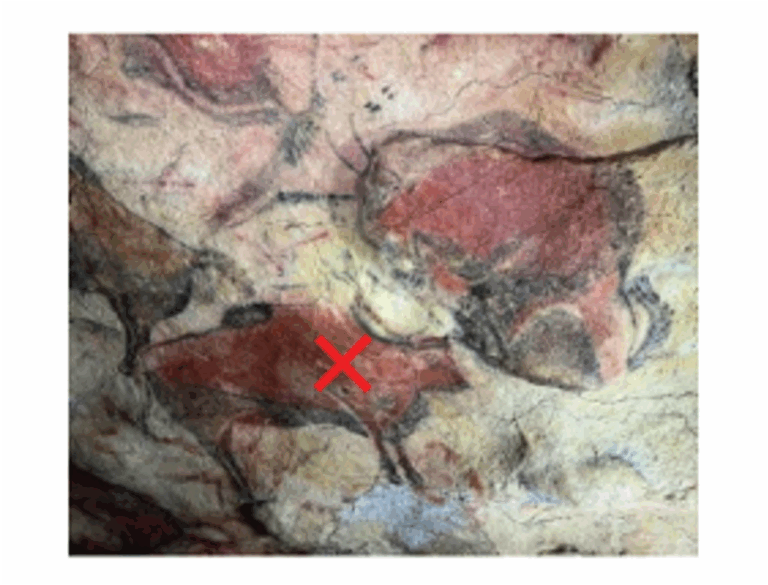MEPHISTO – Study of physico-chemical mechanisms involved in the drying of impasto oil paints: mockups and historical samples of modern paintings
Information about the internship
Since the 1990s, certain modern oil paintings, particularly those from the Second School of Paris, have exhibited alterations such as soft impasto, sticky surfaces, or binder exudation. These alterations compromise both the material stability and visual legibility of the artworks. The physical and chemical mechanisms responsible for this softening remain poorly understood, particularly the role of drying conditions, the composition of paint layers, and the use of metal siccatives in oil polymerization.
The internship focuses on the study of the softening of modern oil paints and aims to better understand the drying, oxidation, and polymerization processes that can lead to these instabilities, through two complementary approaches. The first consists of developing a corpus of model samples by varying the formulation parameters (proportion and type of drying agent, thickness, drying conditions). These systems will allow the early stages of oxidation and polymerization of paint films, both on the surface and at the core, to be monitored using infrared spectroscopy (OPT-IR or IR-TF). The second approach focuses on studying historical samples from Joan Mitchell’s Untitled triptych (1969), conserved at the Royal Monastery of Brou. The analyses will aim to characterize the pictorial technique and materiality of the artwork, using elemental measurements (XRF, SEM-EDS), possibly supplemented by XAS or XRD, as well as infrared spectroscopy for organic materials.
The intern will participate in the preparation of model and historical samples (resin embedding, micro-cutting, surfacing), the implementation of analytical protocols, and the interpretation of results. This work will allow the intern to develop skills in designing an experimental workflow, advanced spectroscopy, polymer chemistry, and heritage materials analysis.
This internship is part of the MODERN doctoral program (80Prime project – MITI – CNRS) and will take place at the IPANEMA laboratory in an interdisciplinary research environment at the interface between materials science, analytical chemistry, and conservation-restoration. The intern will collaborate with a multidisciplinary team and will possibly be able to participate in analysis campaigns using large instruments (notably at the SOLEIL synchrotron). The results obtained may be used in scientific communications or publications related to the MODERN doctoral program.

Required qualifications
This project is supported by DIM-PAMIR (Île-de-France Region), so the student must be enrolled in an educational institution in region Île-de-France.
The internship is open to Master’s 2 students (or equivalent) in physical chemistry, materials science, or a related field, with an interest in heritage sciences and conservation-restoration. Strong knowledges of spectroscopic techniques (IR, XRF) and polymer chemistry would be an asset. Communication skills in English, particularly for scientific communication, would be appreciated. Scientific curiosity, meticulousness, organizational skills, and autonomy will be essential to successfully carry out the assigned tasks.
Important dates
Estimated internship dates: starting no earlier than February 1, 2026 (flexible date) for a total duration of 6 months.
Application deadline: November 27, 2025
Contacts
For further information or to apply, please contact:
Chloë Coustet (co-project proposer) : chloe.coustet@cnrs.fr
Regina Oprandi-Legorre (lab administrator) : regina.oprandi-legorre@cnrs.fr
Maëva L’héronde (materials engineer) : maeva.lheronde@cnrs.fr



